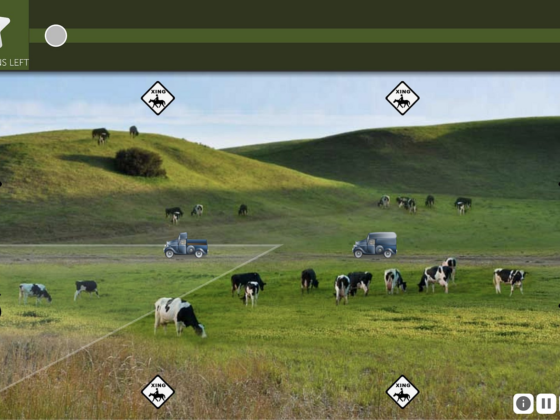Raise a Glass to the Truth
Happy New Year!
As we toast to fresh starts and new beginnings, it’s the perfect time to revisit Louis Pasteur’s famous claim: “Wine is the most healthful and most hygienic of beverages.” The brilliant scientist behind pasteurization has had his words echo through centuries, shaping wine marketing, dinner table conversation, and even health discussions. But here’s the unfiltered truth: Pasteur’s 19th-century claim doesn’t stand up to modern science.
We’ve come a long way in understanding alcohol’s effects on the human body, and the findings aren’t so sweet.
A Sobering Warning
This week, U.S. Surgeon General Dr. Vivek Murthy issued a new advisory linking alcohol consumption directly to cancer risk. Alarmingly, alcohol is the third leading preventable cause of cancer in the United States, trailing only tobacco and obesity. And the statistics are sobering: alcohol contributes to an estimated 100,000 cancer cases and 20,000 cancer deaths annually in the U.S.
The risks aren’t limited to heavy drinkers. Even light alcohol consumption, up to one drink per day — increases the risk of some cancers, like those of the mouth, pharynx and breast.
Cheers…to Cancer?
Cultural norms and clever marketing have dressed alcohol up as glamorous, fun, even healthy. But behind the advertising is a stark reality. Alcohol, regardless of whether it’s beer, wine, or spirits, is classified as a Group 1 carcinogen — the same category as tobacco and asbestos. It’s a substance that, no matter the quantity, raises cancer risk.
The Surgeon General’s advisory called for new warning labels on alcohol products to highlight these dangers, much like the labels on cigarettes. Some countries, such as Ireland, have already taken this step. Irish laws now mandate alcohol bottles to carry labels warning of cancer, liver disease, and the risks of drinking while pregnant.
Drinker Beware
Adding another twist to the narrative, many studies praising wine’s health benefits are funded by the alcohol industry itself. While these studies may highlight positives like heart health, they often sidestep the darker consequences. This raises an important question: Are we seeing the full picture, or just the highlights that suit the industry?
It’s a classic case of “drinker beware.” Industry-funded research doesn’t necessarily mean bad science, but it does mean you should take those glowing headlines with a grain of salt — or better yet, a bunch of grapes. Research is mixed on the health benefits of the Mediterranean diet and red wine. Recent studies suggest that the cardiovascular benefits likely come from the diet, exercise, and social connections — not the wine.
Healthier Cheers
If you love the ritual of pouring a glass at the end of the day, there are plenty of alternatives that feel just as celebratory. Sparkling water with a twist of lime, herbal teas, or even mocktails can provide all the pleasure without the risks.
So the next time someone raises a toast and quotes Louis Pasteur, remember that science has poured new knowledge into that glass. Let’s raise it high— not to alcohol, but to a healthier future. Cheers!
Happy reading,
- Healthbeat: Alcohol consumption increases cancer risk, Zepbound approved for sleep apnea, and National Diabetes Prevention Program reduces costs.
- Sobering Takes: relationship between drinking amounts and cancer risk, unhealthy alcohol use & lack of awareness of treatments, and peer pressure and older adults’ drinking.
- Health Hacks: “Dry January,” best “Me-Time” and new food label definitions.
- Golden Tales: including my personal favorite, As Good as Gold – Why do we still study the color of urine?
Healthbeat
HealthDay
Alcohol Intake Increases Cancer Risk, Beverages Should Carry Warning: Surgeon General
HealthDay
GLP-1 Zepbound Is Approved As First Drug For Sleep Apnea
University of Michigan
National Diabetes Prevention Program saves costs for enrollees
Sobering Truths
New York Times
How Much Alcohol Does It Take to Raise Your Cancer Risk?
Pew
America’s Most Common Drug Problem? Unhealthy Alcohol Use
HeatlhDay
Peer Pressure Influences Older Adult Alcohol Consumption
Health Hacks
NPR
Cutting out alcohol for Dry January? These apps can help
HealthDay
The Most Therapeutic Kind of Me-Time
NPR
Who can say it’s healthy? The FDA has a new definition for food labels
Golden Tales
Smithsonian Magazine
The Gooey Goodness of Velveeta Was a Smash Hit From Its Very Cheesy Start
New York Times
Retire? They’d Rather Jump Out of a Plane.
Distillations Magazine
As Good as Gold. Why do we still study the color of urine?
Enjoy the weekend!
Best,
Suzanne
Suzanne Daniels, Ph.D.
AEPC President
P.O. Box 1416
Birmingham, MI 48012
Office: (248) 792-2187
Email: [email protected]

News you can trust



